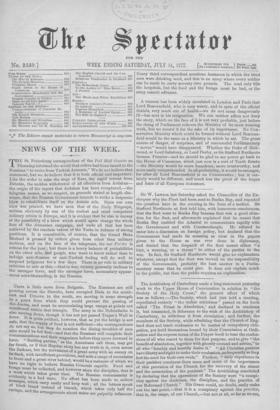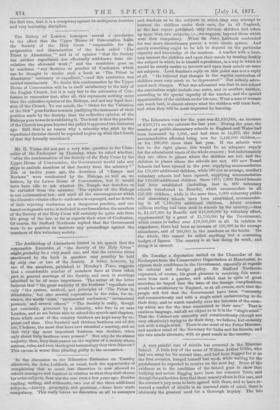The Archbishop of Canterbury made a long statement yesterday week
to the Upper House of Convocation in relation to "the Society of the Holy Cross," the general effect of which was as follows :—The Society, which had just held a meeting, repudiated entirely "the unfair criticisms" passed on the book called The Priest in Absolution,' and declined to condemn it, but consented, in deference to the wish of the Archbishop of Canterbury, to withdraw it from circulation ; and further, the members of the Society, while admitting that the Church of Eng- land does not teach confession to be matter of compulsory obli- gation, yet hold themselves bound by their Commission at Ordi- nation and the express terms of the Prayer-book to hear the confes- 'dons of all who resort to them for that purpose, and to give "the benefit of absolution, together with ghostly counsel and advice," to all who "humbly and heartily desire it." "All Christian persons have liberty and right to make their confession, as frequently as they feel the need for their own souls." Further, "daily experience in their parishes convinces them more and more of the importanoe of this provision of the Church for the recovery of the sinner and the consolation of the penitent." The Archbishop concluded by declaring that the operations of the Society were "a conspi- racy against the doctrines, the discipline, and the practice of our Reformed Church." His Grace could, no doubt, easily make out the last point,—that it is a conspiracy against the practice, that is, the usage, of our Church,—but not at all, so far as we see, the first two, that it is a conspiracy against its ambiguous doctrine and very hesitating discipline.



































